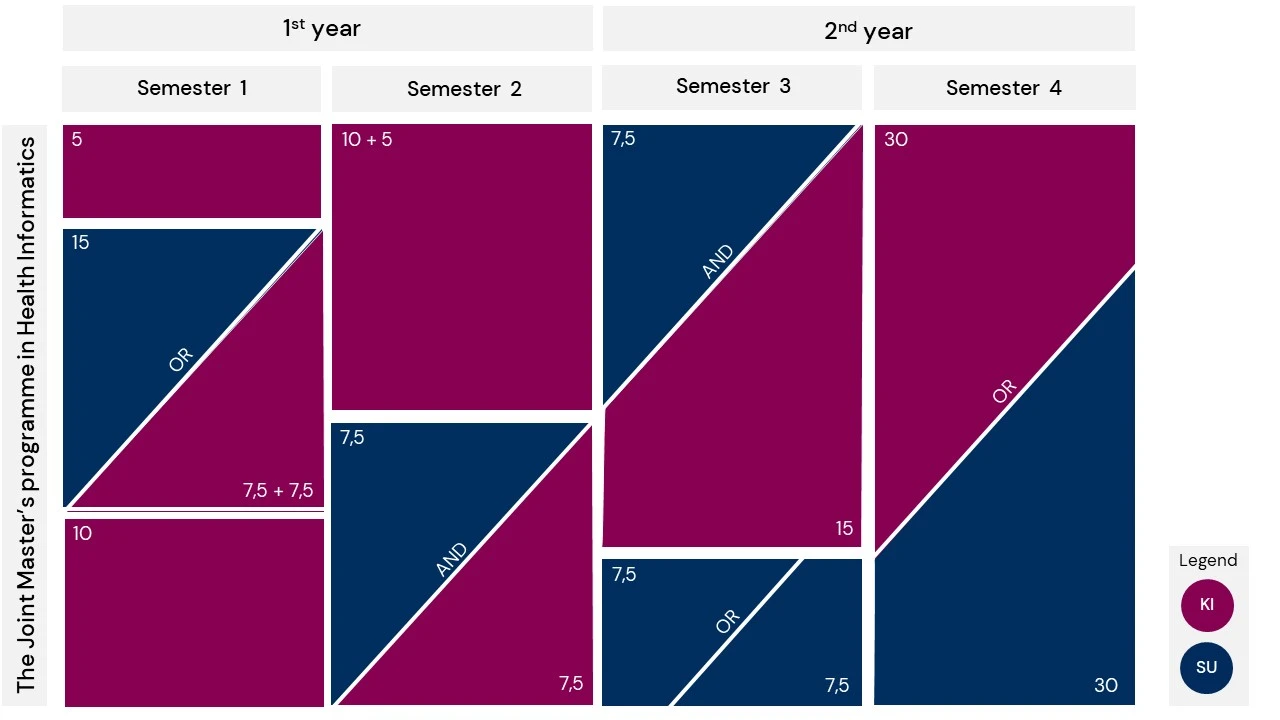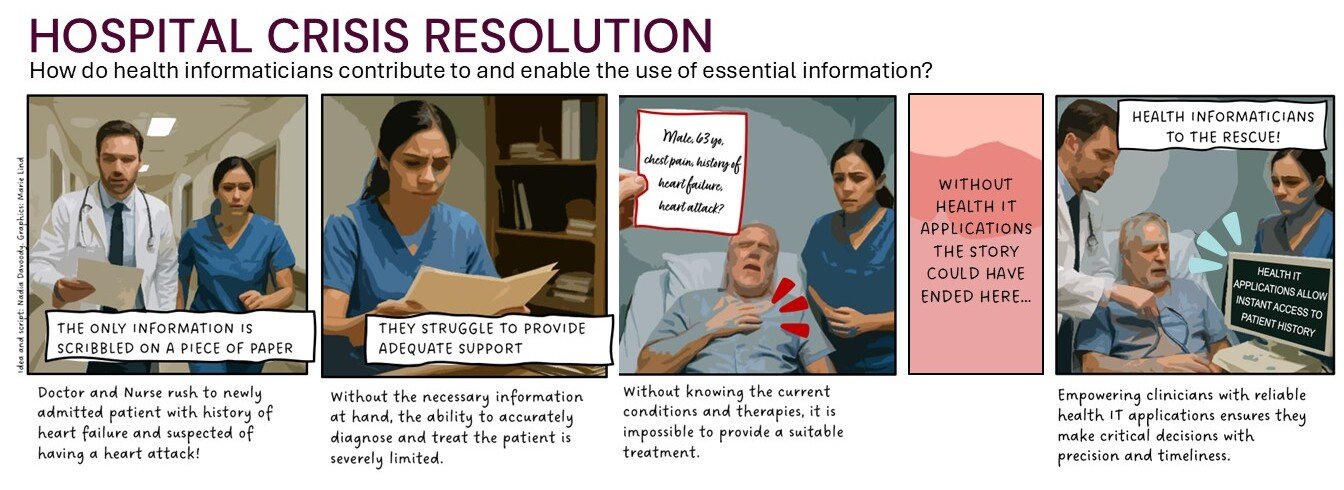All the information to help you chose the Joint Master’s programme in Health Informatics
Chosing a Master's programme is not easy. We have collected all the information we think you might need in order to learn more about the Health Informatics programme!
Overview
The Master’s Programme in Health Informatics is a two-year interdisciplinary programme jointly delivered by Karolinska Institutet and Stockholm University. This unique collaboration bridges the gap between healthcare, information technology, and data science, preparing students for transformative careers in digital health, healthcare analytics, and clinical system design.

As healthcare systems worldwide face increasing complexity, digitization, and demand for data-driven decision-making, health informatics has emerged as a crucial discipline. The programme equips students with the theoretical foundations and practical skills necessary to design, implement, evaluate, and lead IT- and data-based digital systems in healthcare and life sciences settings.
The programme provides a tailored curriculum that enables all students, regardless of previous training in medicine, nursing, computer science, or engineering, to gain a holistic and practice-oriented understanding of health informatics. Students from both technical and clinical backgrounds are warmly welcome.
Curriculum and Structure
The programme is delivered over four semesters (120 ECTS) and consists of core courses, integrated project work, and a master’s thesis. The curriculum combines classroom learning with hands-on, real-world exposure to clinical environments, industry projects, and research settings.

Year 1: Foundation and Methodology
The first semester introduces health informatics as a scientific field and practice area. Students with clinical backgrounds take bridging courses in computing and data science, while those with technical backgrounds study healthcare systems, clinical processes, and medical terminology. All students then engage in a course exploring healthcare needs, information management, digital systems, and their role in health service delivery.
In the second semester, the programme delves deeper into the core methodologies of health informatics. Students learn how to perform business analysis in healthcare, elicit and model user requirements, evaluate systems, and apply internationally recognized health IT standards. Training in data science and scientific research methods prepares students for both applied development work and academic inquiry.
Year 2: Application and Specialization
In the third semester, students focus on the practical application of their skills. They take courses in project management and explore current trends and research in the field. In addition, students choose one course in either information security or digital entrepreneurship.
The final semester is devoted to a master’s thesis, where students independently investigate a research question or develop a digital solution in collaboration with hospitals, healthcare companies, government agencies, or academic research groups. Many projects are carried out in real-world settings, offering invaluable professional experience.
Learning Environment and Practice-Integrated Learning Activities
During the programme, several study visits are made to various healthcare units, IT companies, and authorities, and guest lecturers from these organizations are also invited. In addition, there are great opportunities to write a thesis in collaboration with clinics and industry. This ensures that students engage with authentic problems and real stakeholders, making their learning deeply relevant and immediately applicable.
The learning environment is international and interdisciplinary. Courses are taught in English, and students come from diverse academic, professional, and cultural backgrounds. Collaboration across disciplines is not only encouraged but essential, reflecting the realities of modern healthcare transformation.
Career Opportunities

Graduates of the programme are qualified to work in a wide range of roles within healthcare organizations, public health agencies, technology companies, and research institutions. While some positions in Sweden require proficiency in the Swedish language, alumni go on to pursue careers such as:
- Health informatics specialists, Clinical informaticians, or consultants in hospitals, government agencies, and global health organizations
- Project managers, IT managers, or consultants for health IT implementation and digital transformation
- Clinical data analysts or decision support developers
- Product managers in MedTech or digital health startups
- IT strategist in healthcare
- CMIO (Chief Medical Information Officer) or CCIO (Chief Clinical Information Officer)
- System specialists, application experts, system developers, requirements analysts, interaction designers, evaluators.
- Researchers or doctoral students in health informatics, biomedical data science, or public health
The combination of interdisciplinary training, methodological depth, and practice-integrated learning activities ensures that graduates are well-prepared to lead digital innovation and systemic change in healthcare environments worldwide.
Why Choose this Programme?
This Master’s Programme offers an academically rigorous and professionally relevant education in health informatics. It is characterized by its interdisciplinary approach, integration of academic theory with real-world practice, and focus on the responsible use of technology in healthcare.
Through collaboration between Karolinska Institutet and Stockholm University, students benefit from the strengths of both institutions and graduate with the skills needed to shape the future of healthcare through digital innovation.
After completing the programme, students will receive one degree, but with two titles, a Master of Medical Science by Karolinska Institutet and a Master of Science by Stockholm University.

